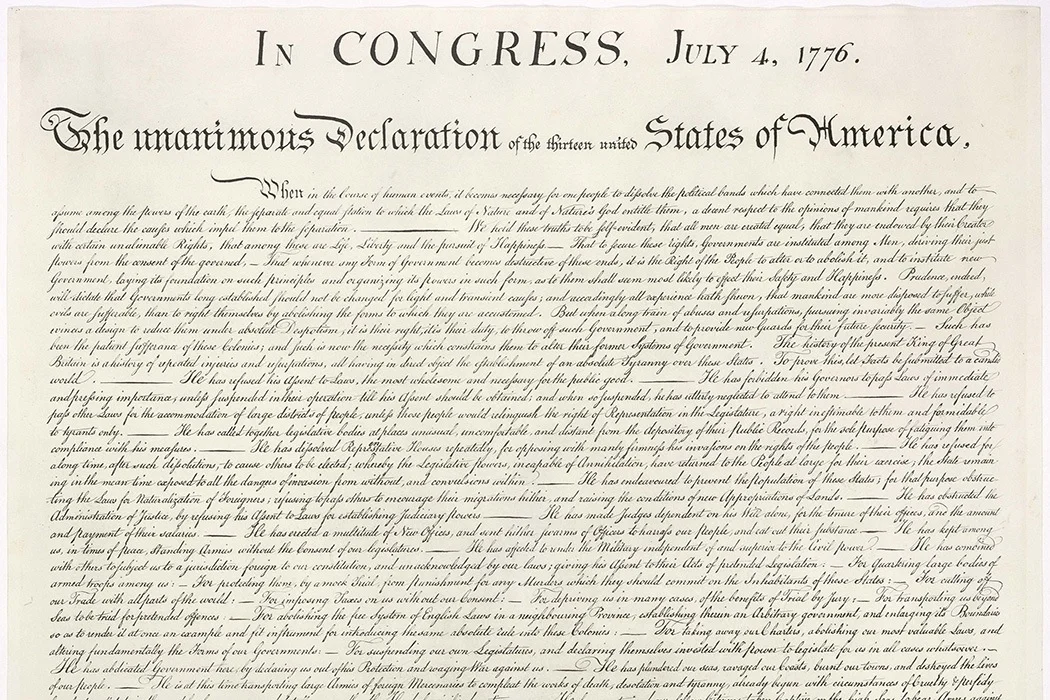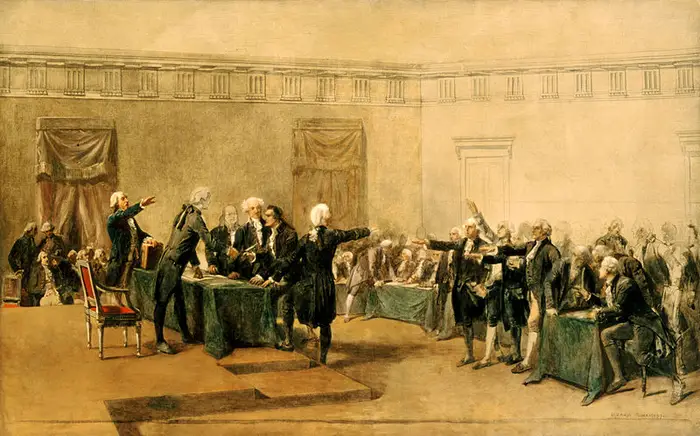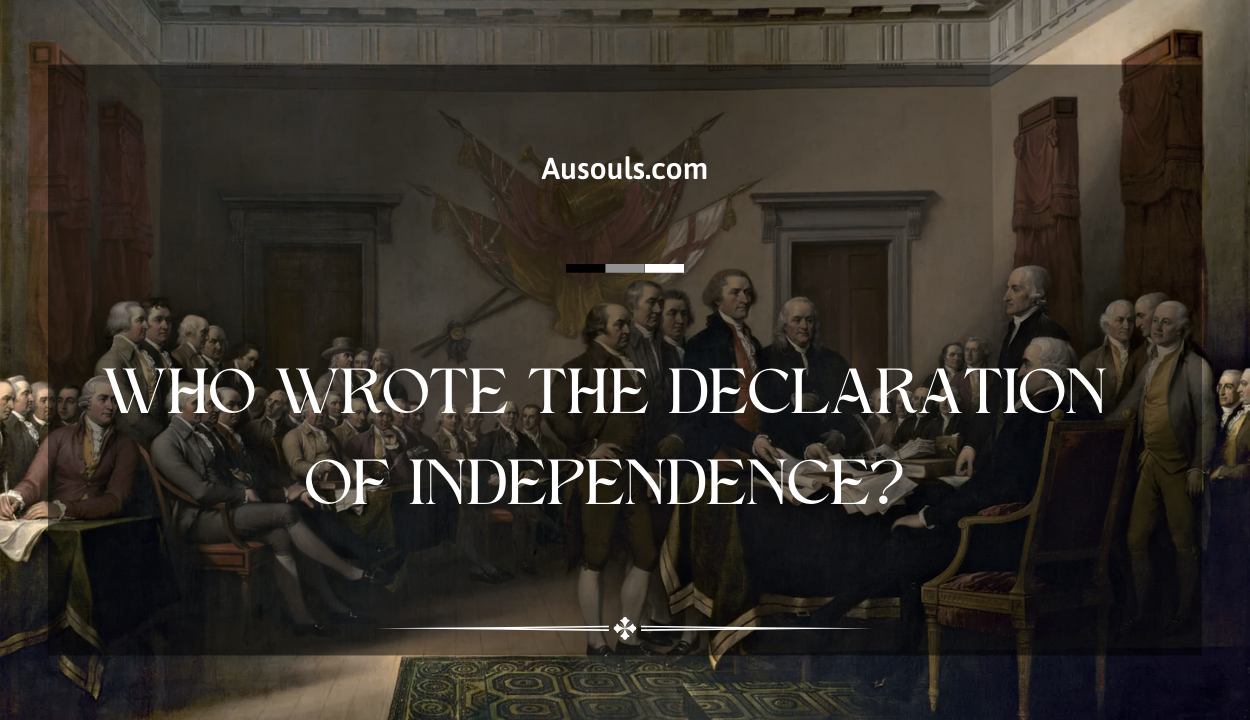On the 4th of July, 1776, the Declaration of Independence was adopted by the Second Continental Congress without crediting Thomas Jefferson as its author.
On July 4, 1776, the Declaration of Independence was adopted by the Second Continental Congress. Despite Thomas Jefferson being credited as the author of the Declaration, this was not the case initially, nor for a considerable amount of time afterward. A committee consisting of John Adams, Benjamin Franklin, Thomas Jefferson, Roger Sherman, and Robert Livingston drafted the document, with Jefferson writing the first draft due to his reputation for exceptional writing skills. The draft was then edited by the other members of the committee, and later the entire Congress. It was signed by 56 members of Congress, with one signing as late as November.

So how did Jefferson’s authorship become recognized? Robert M.S. McDonald suggests that the changing political scene and the evolving meanings of authorship and authority played a crucial role. In the period between 1776 and 1826, the Declaration’s political significance was dependent on Americans’ initial lack of knowledge about its authorship and their eventual recognition of Jefferson’s role as its writer.
>> Read more: Top 7 Best 4th Of July T-Shirts To Celebrate America’s Independence
Jefferson attributed the credit to Locke, Montesquieu, the Scottish Enlightenment, and the prolonged battle for English civil liberties.
The Declaration was viewed as a collective agreement issued by all thirteen states during the Revolution, marking a treasonous act against the British Crown. The signers demonstrated great bravery and conviction by putting their names down, pledging “our Lives, our Fortunes, and our sacred Honor.” However, it was not the individual will of the signers that made the Declaration effective, but rather the persuasiveness of its arguments. After the battle for independence had been won, the battle for the United States began. In the 1790s, the Declaration became a weapon for partisan warfare, and its creator, Jefferson, gained fame gradually. However, John Adams was not pleased with the Declaration’s increasing importance. In 1805, he questioned whether there had ever been a more impactful “coup de théâtre” than Jefferson’s penmanship of the Declaration of Independence.

Although Jefferson wrote the Declaration of Independence, he did not publicly acknowledge himself as the “scribe of independence” until his last year of life. This was not due to false modesty, but rather the societal norms of the 18th century, which valued political disinterestedness and the sublimation of self. This is exemplified by the fact that the authors of the Federalist Papers signed under the pseudonym “Publius,” and the Constitution claimed authorship by “We, the People.” It wasn’t until the 19th century that self-promotion became more prevalent. In their final years, Jefferson and Adams reconciled and both passed away on July 4, 1826 – the 50th anniversary of the Declaration’s adoption. Although Jefferson is now recognized as the author of the Declaration, he himself claimed that there were no new ideas in it, and credit is also due to other sources of liberty such as Locke, Montesquieu, the Scottish Enlightenment, and the long fight for English civil liberties.
>> Read more:
- 25 Fun-Filled Fourth of July Activities for the Whole Family
- Experience the Ultimate Fourth of July Celebration in 2023 with Timeless Traditions, Rich History, and Mouthwatering Recipes
- Top 7 Best American T-Shirts To Show Your Patriotism



